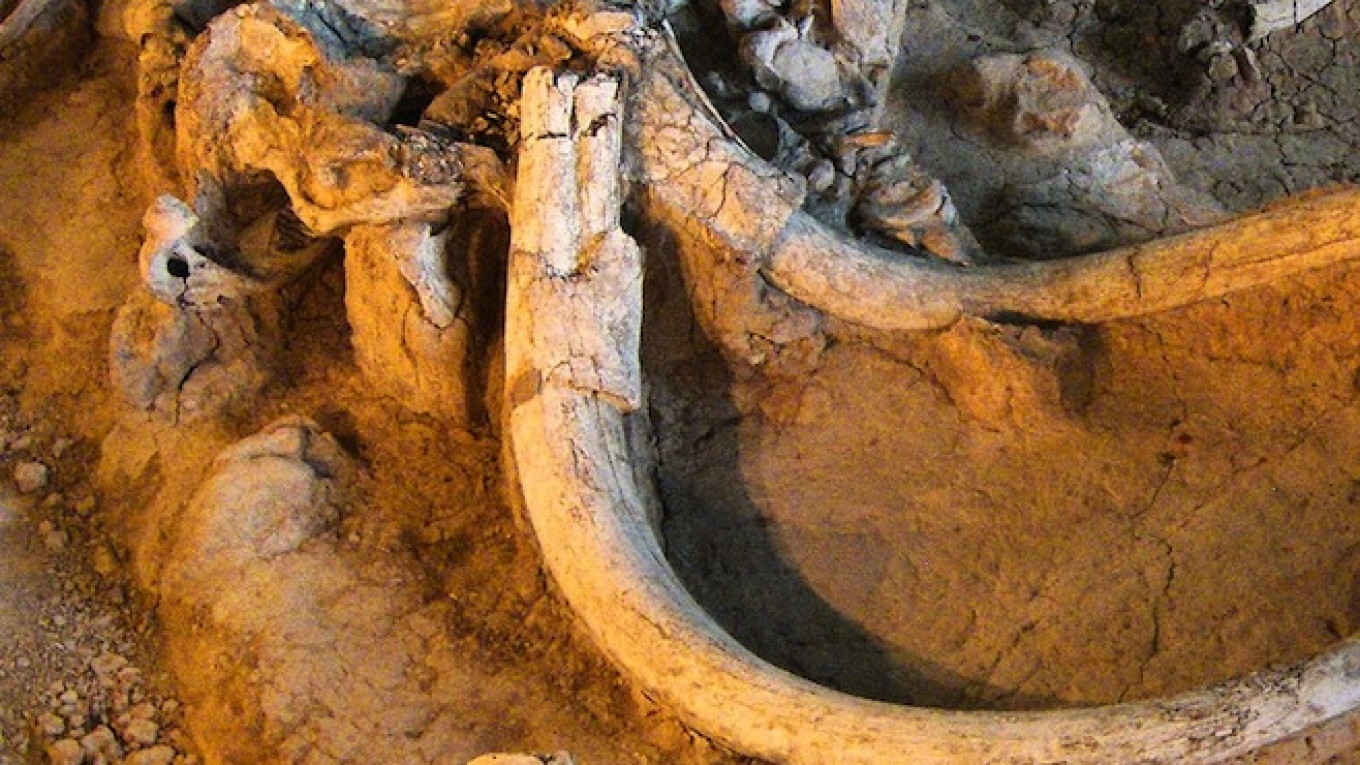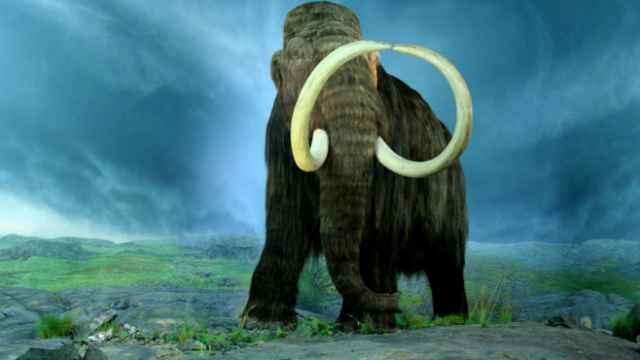When workers digging up sand at a quarry in Russia's Ural Mountains stumbled upon several large bones, they had no idea they had just unearthed a graveyard of mammoth tusks and other prehistoric animals' remains.
The Kuzeyev Institute for Ethnological Research said in a statement last week that archeologists had started excavations at a site near the Belaya River in the Bashkortostan region after workers at a quarry reported having dug up several outlandishly large bones.
Digging up a 200-square-meter area, archaeologists then unearthed numerous more bones belonging to prehistoric animals, including mammoth tusks and vertebrae, RIA Novosti news agency reported, citing a spokesperson for the local archeology museum.
The museum, where the remains will be preserved, is now awaiting a crew of paleontologists to establish the mammoths' age and gender, the spokesperson was quoted as saying.
Scientists will also work on identifying which prehistoric animals some of the other discovered bones belong to, RIA Novosti said.
Since 2007, the local archeology museum already has had as part of its collection the skeleton of a mammoth that was found near the same river in 1970, the report added.
A Message from The Moscow Times:
Dear readers,
We are facing unprecedented challenges. Russia's Prosecutor General's Office has designated The Moscow Times as an "undesirable" organization, criminalizing our work and putting our staff at risk of prosecution. This follows our earlier unjust labeling as a "foreign agent."
These actions are direct attempts to silence independent journalism in Russia. The authorities claim our work "discredits the decisions of the Russian leadership." We see things differently: we strive to provide accurate, unbiased reporting on Russia.
We, the journalists of The Moscow Times, refuse to be silenced. But to continue our work, we need your help.
Your support, no matter how small, makes a world of difference. If you can, please support us monthly starting from just $2. It's quick to set up, and every contribution makes a significant impact.
By supporting The Moscow Times, you're defending open, independent journalism in the face of repression. Thank you for standing with us.
Remind me later.






